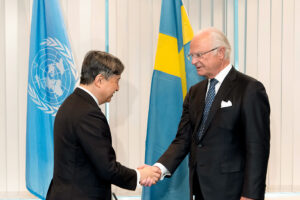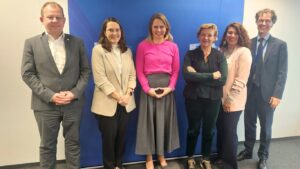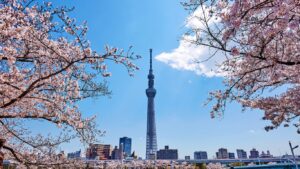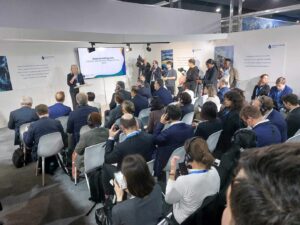“Most progressive water utility in Africa” wins 2014 Stockholm Industry Water Award
eThekwini Water & Sanitation, serving the Durban metropolitan area in South Africa, has been named the 2014 winner of the...
eThekwini Water & Sanitation, serving the Durban metropolitan area in South Africa, has been named the 2014 winner of the Stockholm Industry Water Award, for its transformative and inclusive approach to providing water and sanitation services.
“This recognition reflects the work of our whole team over the past 22 years and is a tremendous honour for all of us here in Durban,” says Neil Macleod, head of eThekwini Water and Sanitation.
South Africa’s constitution from 1996, praised as a model for inclusion of social rights, enshrined the human right to water. Local government was tasked with putting it into practice. Soon after, Durban, one of the country’s main urban centres, expanded its administrative boundaries to include 3.5 million people, some of them living in poorly serviced rural areas with huge water and sanitation challenges. The eThekwini municipality decided to face these challenges head-on.
In the past 14 years, 1.3 million additional people in greater Durban have been connected to piped water and 700,000 people have been provided with access to toilets. In respecting the constitutional right to water while maintaining financial sustainability, access to basic water supply and sanitation is provided at no cost to poor families, while higher levels of service and consumption are charged at full cost.
In addition to successfully providing basic services to a large and diverse population, eThekwini Water and Sanitation is at the forefront of exploring technical and social solutions. One example is a mini hydro-power project: instead of using pressure reducing valves in pipes running down steep hillsides, the company is installing mini turbines using the excess pressure to generate electricity for the city’s low tension grid. The eThekwini municipality is also pioneering solutions to convert urban wastewater challenges to agricultural opportunities as well as harvesting rainwater.
The combined result is one of the most progressive utilities in the world. The open approach to experimenting and piloting new solutions across both technical and social aspects of service delivery has made eThekwini a forerunner in the world of utility-run services. One partner comments that “leaders at eThekwini have already been betting on new and risky approaches to test innovation that will ultimately have a long term benefit for the population, most municipalities refrain from exploring ideas out of the box, focusing on business as usual.”
“eThekwini has championed the approach to provide sufficient water to sustain human life, as expressed in the South African constitution, now embedded in national policy. The methods used and results achieved by eThekwini Water and Sanitation serve as a sterling example for the many communities worldwide facing similar challenges,” states the Stockholm Industry Water Award (SIWA) jury in its citation.
Water and Sanitation unit of eThekwini Municipality was established in 1992. It manages the water and sanitation services for the 3.5 million people living in the Durban area, and has worked with some of the world’s major actors and knowledge hubs in water and sanitation as well as development, such as the Bill and Melinda Gates Foundation, the World Bank, the University of KwaZulu-Natal, Borda, Eawag, and DHI. Its methods have been replicated across the country and region, and eThekwini representatives are successfully sharing and disseminating their findings and working methods.
SIWA – recognising water excellence in the business world
The Stockholm Industry Water Award (SIWA) was established in 2000 to stimulate and celebrate outstanding and transformative water achievements by companies in improving production, managing risks, finding solutions and contributing to wise water management. The Royal Swedish Academy of Engineering Sciences (IVA) and the World Business Council for Sustainable Development (WBCSD) were partners in establishing the award, which is also supported by International Water Association (IWA) and World Wide Fund for Nature (WWF).








